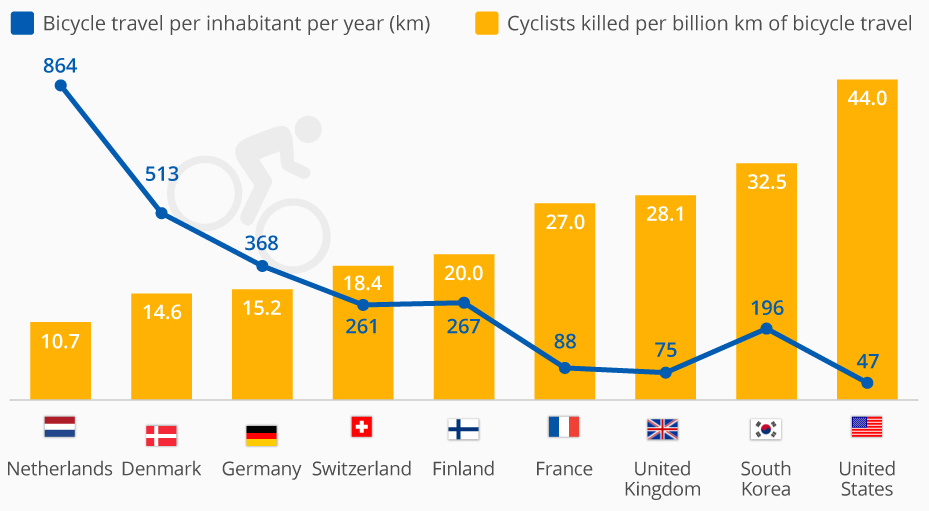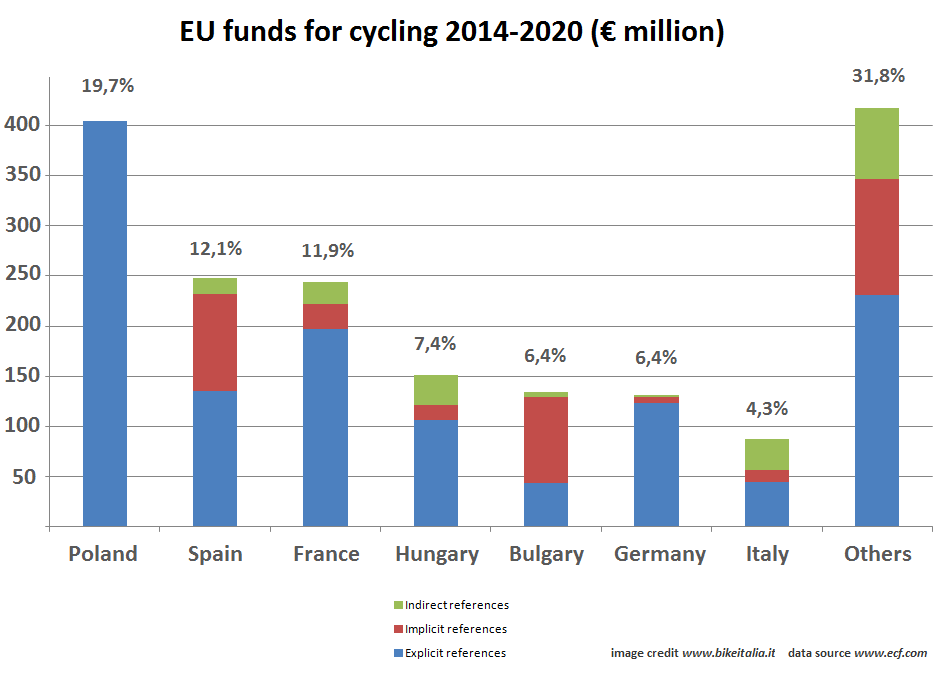First assignment of group n° 006
Resources used by the team[modifier | modifier le wikicode]
Videos:
| |
Videos:
| |
Videos:
| |
Videos:
| |
Videos:
| |
Videos:
| |
Videos:
|
First description of our project[modifier | modifier le wikicode]
ActiCity[modifier | modifier le wikicode]
Nowadays cycling is gaining an increasing popularity and people are using it not only as an everyday mean of transport but also in their leisure time. People mostly choose to use a bicycle for different reasons: it is fun, it is a healthy exercise, it is environmentally friendly, fast (in congested urban areas) and it is inexpensive. Not only this activity has a positive impact on the surrounding environment, but also studies prove that it will have boosting effects on the health. Our main concern regarding biking is that people are facing safety issues.
So, we are asking ourselves in which way we can improve bikes and bikers’ safety in big cities, in order to encourage people to use it as an everyday way of transportation.
1. What Problem do you want to solve ?
According to Merriam-Webster, road safety is the quality or state of being free from any danger in the street. The lack of security is probably the most important issue in today’s environment, especially for factors related to bikes’ usage. Only a few countries in the world have built sufficient infrastructures (bike racks, lockers, bike lanes…) that facilitate biking (such as the Netherlands, Denmark and Germany). European governments do not pay enough attention to bike safety problems because of the lack of resources allocated for cycle-friendly infrastructures. Therefore, cyclists are forced to share road space either with heavier vehicles or with pedestrians; that is increasing clashes and accidents. The lack of infrastructures curbs cyclists to use bikes especially in big cities. Also, the behaviour of cyclists, drivers and pedestrians might expose them to increasing dangers. In fact, according to an INPES study of 2009, it might happen that either drivers turn without signalling it (61%), either some bikers circulate on the pavement and invade the pedestrians’ area (77%) or they even cross the road with the red light on (62%). In 2014, cyclists represented 4.7% of road deaths in France and over the last year, the bike mortality increased by 8.2% (preventionroutiere.asso, 2014).

The lack of parking infrastructures discourages people to take their bikes in their everyday life. As a consequence, cyclists are forced to leave their gears on non-stationary facilities. Based on the recent statistics, it is clear that bicycles are not safe from thefts; no matter where they are left, they can be stolen easily. For example, in the United Kingdom, an estimated half million-plus bikes are stolen every year (around 400,000 stolen bikes in France). Therefore it is not a surprise that security is a perennial topic on cycling-related articles and studies. Bike thefts in the UK are on the increase as more people start cycling. This creates a major barrier to cycling growth. The last but not less important issue that cyclists have to face is the weather conditions. Indeed, with a rainy weather streets are more dangerous because the pavement is more slippery and thus it reduces visibility. An essential fact to take into consideration is the low quality of the street lighting. By night or early in the day, it happens that drivers and bikers cannot see what is happening around them and that is potentially very dangerous for every street user.
2. Why does this problem exist?
We noticed that those problems exist because we experienced them in our daily life and by noticing what surrounds us. The fact that people are not encouraged to take their bikes is driven by several reasons. The first cause of that is the low commitment of governments in financing structures that will help bike mobility in the cities. The really scarce number of infrastructures built all around Europe derives from the fact that usually more relevance is given to cars rather than other ways of transportation. On the contrary, in Denmark, in particular in the city of Copenhagen, cycling facilities are integrated into the urban planning and they are not considered as an afterthought. The main examples of these facilities are the “bike snake” and bicycle bridges that helped the city shift the bike usage from 36% to a 45% (The Copenhagenize project, 2015).

Another problem is the fact that cities are more and more crowded with cars and other heavy vehicles. Therefore, cycling is getting increasingly dangerous. Since bikers do not have lanes spared specially for them, they have to cycle between buses and taxis, but this raises the chances of them being hit by those vehicles. In fact, in Paris during last year 118 of the 147 deaths on bikes have been caused by cars (Le Monde, Feb. 3rd 2015). One last problem that is well radicated into the roots of our society is the fact that robbers usually manage to get away with thefts. This malicious mentality, which is not shared all over the world, is one of the main causes for which bikes are constantly being stolen.
3. What breakthrough are you commited to creating?
The use of bicycles helps its users to lead a healthier life, and it is also an efficient and inexpensive way of transportation. In fact, biking will make people feel more energetic and look younger by doing exercises and taking fresh air everyday. Also, with overcrowded cities, it is faster to use bicycles because it will avoid traffic jams. By spending less time in congestion, people get less frustrated and they can reduce their stress. Additionally, taking up cycling helps to reduce the air pollution and will also help the environment by reducing chemical substances floating in the air.
However, its users are facing major problems such as personal safety and bicycles’ security.
We want to establish a conscious, safe and sustainable environment.
Thus, the breakthrough that we want to create is one that will help drastically reduce the number of accidents and thefts. Therefore, it will encourage people to take their bikes, skateboards and scooters in their everyday life rather than just occasionally without being scared. We want to establish a conscious, safe and sustainable environment.
Potential experts already identified
- Hervé BELLUT, president of the association BusCyclists, 06.29.61.66.85, 09.52-91-60-12
- Christophe NAJDOVSKI, Paris Major's assistant in charge of all matters related to transport, travel and public space, 01 44 68 12 12
- Clotilde IMBERT, Urbaniste, Directrice de l'agence Copenhagenize France, clotilde.imbert@gmail.com
- Nicolas URIEN, European Cyclists' Federation, Project Director – Growth Initiative for Cycling, n.urien@ecf.com
- Olivier SCHNEIDER, President of FUB (Fédération des Usagers de la Bicyclette), o.schneider@fubicyX.com
- Annie-Claude THIOLAT, Project manager at Velo-City 2015, contact@velo-city2015.com